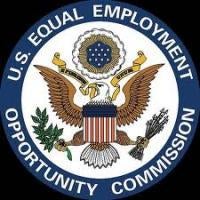Tech Company Failed to Comply With Terms Settling Race and Age Bias Charge, Federal Agency Says
NEWARK, N.J. – A Newark, N.J., information technology training and service company violated a settlement agreement stemming from an age and race discrimination charge when it failed to complete payments that were a condition of the agreement, the U.S. Equal Employment Opportunity Commission (EEOC) charged in a lawsuit announced today.
According to the EEOC, HD Dimension Corp. entered into a conciliation agreement to resolve a discrimination charge and agreed to pay $32,500 to an applicant who, the EEOC found, had been discriminated against because of her age and race. The agreement also required various injunctive provisions including training for HD Dimension employees and management and training for third-party companies who did recruitment for HD Dimension. From October 2009 through February 2010, the company made monthly payments toward satisfying the conciliation agreement, but stopped after paying only $17,500 of the agreed-upon $32,500. HD Dimension never complied with any of the injunctive relief.
The EEOC filed suit in U.S. District Court for the District of New Jersey to enforce the agreement after HD Dimension failed to make any payments for 12 months. The EEOC filed suit after first attempting to reach a pre-litigation settlement through its conciliation process.
The conduct alleged in the original discrimination charge violates Title VII of the Civil Rights Act of 1964, which prohibits employment discrimination based on race, color, religion, sex (including sexual harassment or pregnancy) or national origin and protects employees who complain about such offenses from retaliation. The alleged conduct also violates the Age Discrimination in Employment Act (ADEA), which prohibits discrimination in the workplace based on age.
“When the EEOC enters into conciliation agreements with companies, the process does not end there,” said Charles F. Coleman, Jr., a trial attorney in the EEOC’s New York office. “We continue to monitor these agreements to ensure that they are carried out and, in this case, it was not, so we had to take forthright action.”
Judy Keenan, the EEOC’s acting regional attorney in the New York office, said, “The EEOC will absolutely enforce the conciliation agreements it reaches, even if that means filing a lawsuit. The objective of this suit is to obtain full relief under the conciliation agreement and place others on notice that the EEOC will not tolerate this behavior.”



 />i
/>i

